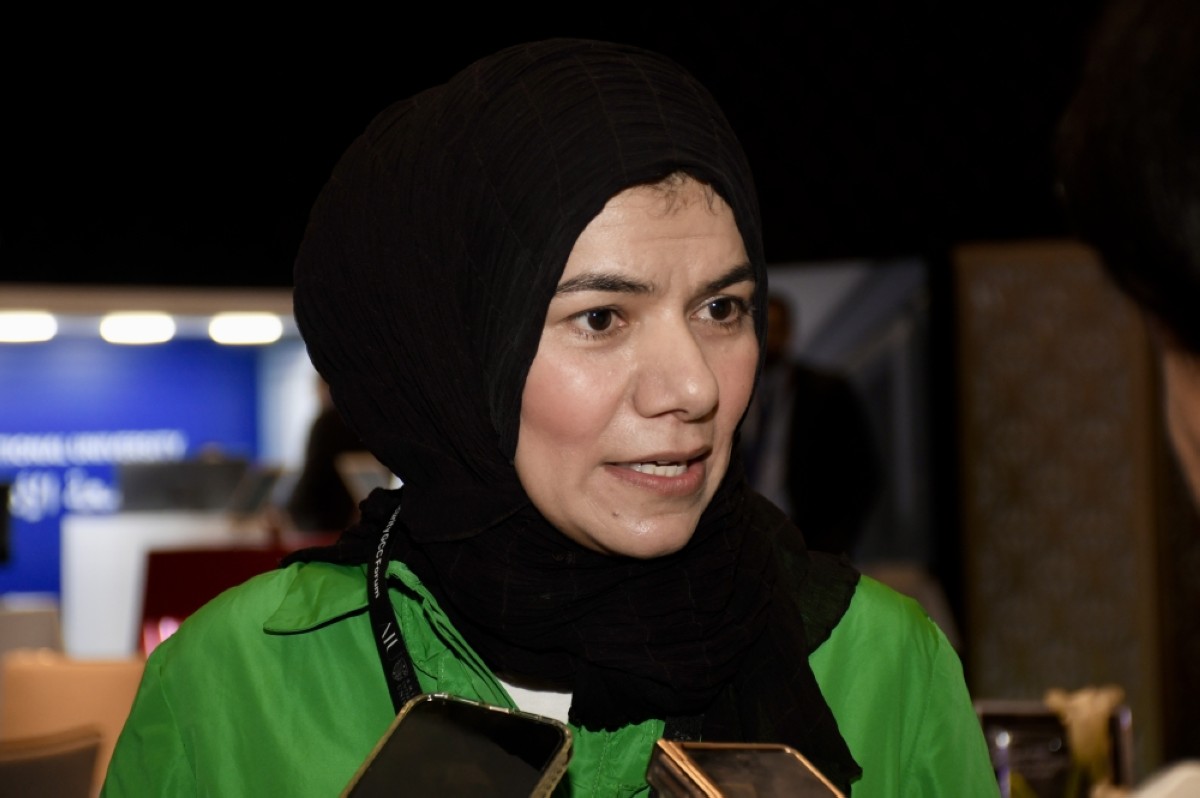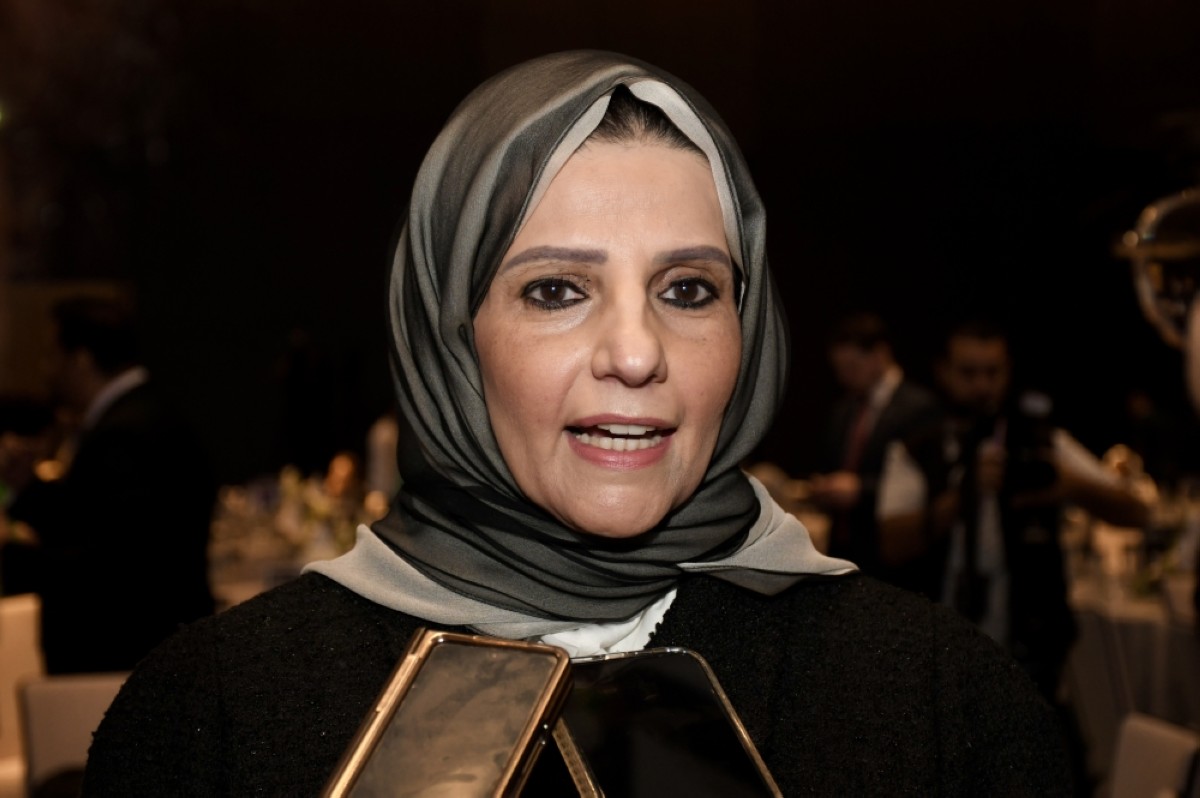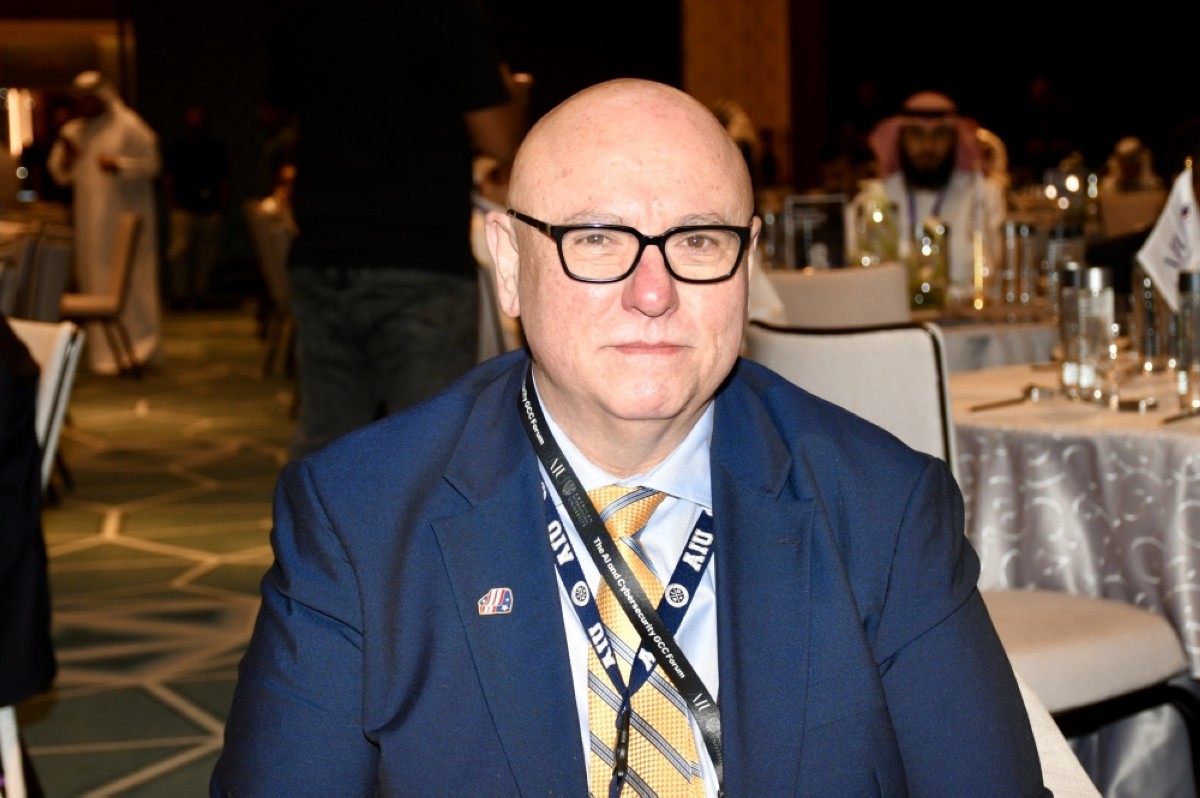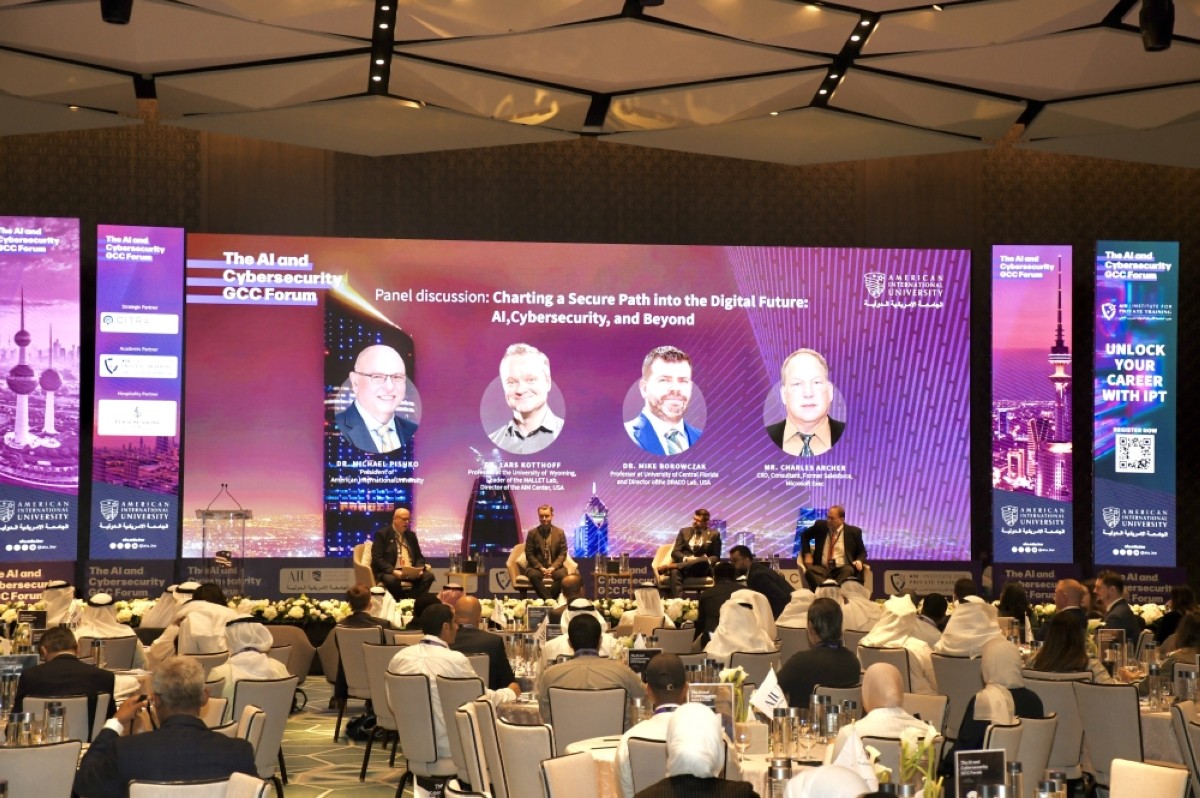By Faten Omar
KUWAIT: American International University (AIU) organized the AI and Cybersecurity GCC Forum on Wednesday at the Four Seasons Hotel, in a strategic partnership with the Communication and Information Technology Regulatory Authority (CITRA). The forum aims to foster high-level dialogues, share expertise and facilitate networking opportunities in the rapidly evolving fields of AI and cybersecurity.
In his opening speech, Dr Michael Pishko, President of American International University, stated that the forum’s goal is to explore and advance the understanding of the dynamic interplay between artificial intelligence and cybersecurity due to the rapid integration of AI across various sectors. He acknowledged AI’s capabilities in automating complex processes, enhancing predictive analytics and revolutionizing data-driven decision-making. However, he emphasized that these advancements also introduce ethical, privacy and cybersecurity risks that require immediate and strategic responses.
Pishko highlighted that the forum focuses on the multifaceted nature of AI in the realm of cybersecurity and its role in developing advanced cybersecurity protocols, including real-time threat detection and adaptive response mechanisms. The potential risks of AI being exploited for sophisticated cyberattacks and the development of ethical AI frameworks, data privacy safeguards and resilient AI systems immune to adversarial attacks are at the forefront of discussions. Pishko emphasized that the forum is a collaborative mission to safeguard the digital future, setting a benchmark in the GCC region and contributing to the global discourse on AI and cybersecurity.






Areej Alghanim, Vice Chair of the Board of Trustees of AIU, expressed the university’s commitment to being the first to hold a conference of its kind in the Gulf. She mentioned the annual event’s purpose to present what is new, spread awareness, and enhance understanding in the field. The strategic partnership with CITRA signifies a commitment to knowledge and scientific exchange to meet the challenges of rapid digital development. Alghanim highlighted the cooperation between the communications authority and AIU, affirming the parties’ keenness to provide societal support and education for future generations. She announced the participation of specialists from Kuwait, Saudi Arabia, UAE and the US in six workshops with over 350 participants, facilitating the exchange of experiences in the field.
During his presentation, Anas Al-Faris, Co-founder and CEO of Intelmatix in Saudi Arabia, explored the transformative concept of "Creating Cognitive Enterprises through Decision Intelligence”. He delved into the integration of decision intelligence into business strategies, emphasizing its role in shaping cognitive enterprises. Faris provided insights into the synergy between cutting-edge technologies and strategic decision-making processes, emphasizing the pivotal role that decision intelligence plays in navigating contemporary business complexities.
Faris revealed that industrial revolutions have contributed to human progress by improving physical capabilities. He emphasized that the latest Industrial Revolution, led by artificial intelligence, enables the use of technology to support cognitive abilities and improve decision-making at a high level of cognitive functions such as perception, attention, and memory.
Faris explained the concept of a cognitive enterprise as a transformative approach to business operations, integrating advanced technologies to enhance productivity and overall performance. Organizations embracing cognitive technologies are reported to be 48 percent more likely to improve productivity. Furthermore, the adoption of cognitive technologies correlates with a substantial 2.2X increase in achieving customer retention. This shift not only leads to a 24 percent reduction in costs but also translates into a 26 percent increase in revenues and 30 percent higher profitability.
In her presentation, Dr Safaa Zaman, President of the Information Security Association, focused on the relationship between artificial intelligence and cybersecurity. She categorized the relationship into three areas: The usage of AI to develop security systems, to develop hacking tools and the critical area of developing gaps and defects in smart digital systems. Dr Zaman’s working paper provided recommendations on how to deal with smart systems without invading privacy and the means to limit these penetrations.

